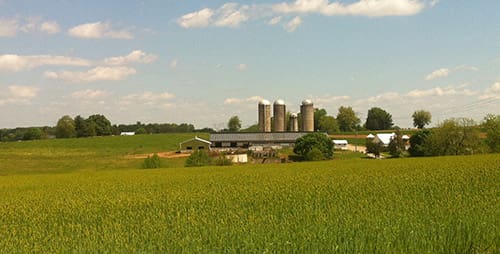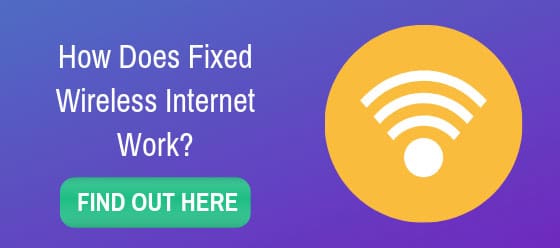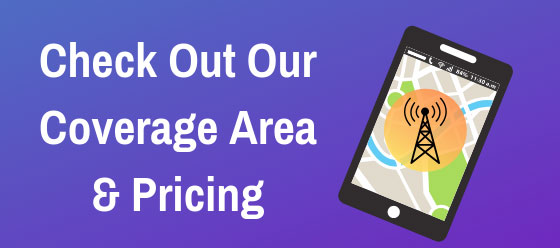
Hundreds of thousands, and potentially millions, of Pennsylvanians do not have access to high-speed internet. As our world becomes increasingly tech-driven and reliant on internet communication and connections, this is a bigger problem than just slowly buffering cat videos and frustrated internet gamers. From students to businesses to healthcare, no access to broadband connections could leave many in the state at a disadvantage[1].
According to the FCC, broadband internet is defined as speeds of 25 megabits per second (Mbps) for downloading and 3 Mbps for uploading[2]. This governmental body found that 800,000[3] Pennsylvanians lack high-speed internet access. However, many expect that number to be grossly higher, as the internet speed data is self-reported by the internet providers themselves, who have a big incentive to inflate those numbers to create a more positive perception of their brand.
An independent study conducted by Pennsylvania State University found the FCC’s number to be shockingly low. Over nearly ten years of research, they found that the number of Pennsylvanians without broadband internet isn’t just a little higher, but 1,375% higher.
The study found that the number of Pennsylvanian residents without broadband internet is as high as 11 million[4]. And those people all have one thing in common – they live in rural areas, like Quarryville, Oxford, Paradise, Gap, and New Providence.
Because cable internet requires costly infrastructure, most cable companies stick to densely populated areas where they can make better gains on their investments. Until recently, this left residents and businesses in 95% of Pennsylvania with two options: DSL (which transmits internet connected via telephone lines) and satellite, neither known for being lightning-fast.
As the need for high-speed internet options for all Pennsylvanians becomes more apparent, a new kind of internet is beginning to take route in Central PA and its underserved regions – fixed wireless internet. Upward Broadband is here to bring it to you.
What Is Fixed Wireless Internet?
Upward Broadband delivers fixed wireless internet, which provides a broadband internet connection through radio waves disseminated from a local tower to a sensor located on your home or business. Unlike cable internet, there’s no need for cable infrastructure, making it easier and quicker to install in remote areas. And unlike satellite internet, the connections are local, as opposed to beaming from Earth’s surface to its orbit.
Broadband Internet to Underserved Areas

One of the biggest barriers to wide-spread cable internet is the necessary infrastructure. Internet connection is transmitted through wires, which need to be run to each house and business. This costs the cable company money. In urban and suburban areas, cable companies are happy to do this. Because many customers live in a relatively small area, they can easily make enough money to warrant the infrastructure.
However, in more remote and rural areas, population (and customer) density is much lower. Cable companies are not willing to invest in these areas, because the costs associated with transportation, burying cables, and getting permits are not worth the investment for a limited number of subscribers as opposed to areas more densely populated. If the company does run the cables out, they may not update them as frequently as more congested areas, leaving rural customers with internet that lags behind the rest.
But in a world that’s increasingly connected and dependent on the internet, that puts rural homes and businesses at a big disadvantage.
Underserved customers are left with two options: DSL or satellite. While DSL runs through phone lines, making it easily accessible to most people in less populous areas, it is often too slow to be considered broadband. Satellite offers a connection that’s often faster than DSL, but still experiences latency issues and lagging as the signal is sent over 20,000 miles to a satellite in Earth’s orbit.
Here’s where fixed wireless internet comes in.
Fixed wireless internet offers the speed and reliability of cable internet, but with less expensive infrastructure, meaning it can easily be installed in rural or secluded areas.
Instead of requiring miles and miles of cable, local towers are constructed that give off radio waves. Subscribers capture these radio waves with an antenna, and all the devices in that home or business can access broadband internet.
Buying Local
We all know the big players in the internet industry. Love them or hate them, they’re not exactly based in your backyard. However, with Upward Broadband entering into the market, you have an option to partner with locally owned and operated businesses.
A huge benefit of that is the service. It’s easy for large companies to get disconnected from their customers and their customers’ needs. And with limited competition, it’s easy for them to stay disconnected.
But Upward Broadband offers another option. We fill in where the big cable companies are lacking – top-notch customer service, gimmick-free pricing, and fair practices.
Instead of offering frustrating bundles with features you’ll never or rarely use, Upward Broadband offers unbundled pricing, meaning you only pay for what you need and want. There’s no gimmicks or tricks and no data limits, meaning you can play or work in peace, without having to worry about how much data you’re using.
Is Fixed Wireless Internet Right for You?
Upward Broadband is serving customers in Lancaster and Chester Counties. If you’re looking for fairly priced, unbundled broadband internet access, or you’re looking to make a switch to a local company where you’re more than just an account number, find out if you’re in an area we cover.
[1] https://www.centredaily.com/news/local/article228780844.html
[2] https://whyy.org/articles/penn-state-study-says-most-of-pa-lacks-access-to-high-speed-broadband/
[4] https://www.porh.psu.edu/new-report-details-broadband-access-across-pennsylvania/






[…] Upward Broadband is our ability to bring high-speed, broadband internet to homes and businesses in Lancaster and Chester counties that don’t currently have that […]